While Malta is not particularly renowned for nature, there's one undiscovered spot where you can sit and experience true calm, surrounded by nature and an expansive view of the Mediterranean beyond.
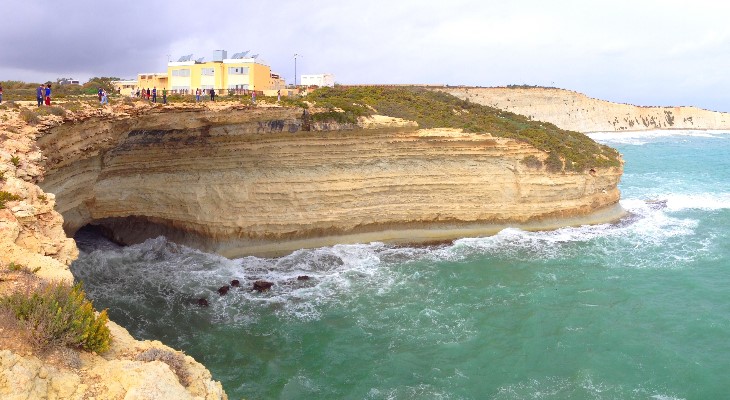
viewingmalta.com
"When you boil pasta, you get that turbid, white film from the pasta itself. During rough weather, the coast is covered with bubbles, and the nearby sea becomes creamish in colour, due to the upwelling of the sediments from the bottom floor of the sea. It looks like that white film from the pasta. That's why it’s thought to be named Xrobb l-Ghagin," Hostel Manager Audrey Gauci, from Xrobb L-Ghagin nature park, explains.
Looking at the serene, untouched bay now, it's hard to imagine it being a murky mess. This is the bay located right next to Xrobb l-Għagin nature park, which is run by Nature Trust–FEE Malta – an environmental NGO that has been active in the Maltese islands since 1962.
There's a quiet little 30-bed hostel situated in the middle of the nature park, surrounded by typical Maltese garigue, steppe habitat, and a Mediterranean woodland. This is complemented by coastal ecology with a view of magnificent sea all round. The park consists of over 155,000 square metres on a jutting peninsula with scenic views of Malta’s southeast within the locality of Marsaxlokk. Having sustainable development and education as one of its principles, the hostel promotes nature and enjoyment of the beautiful surrounding areas while relaxing in a natural environment.
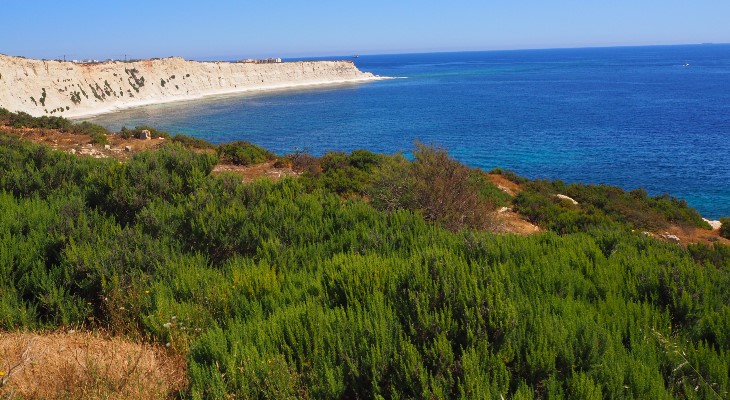
"It's hard to say that the hostel caters specifically to any given market because it's truly for everyone - from students to adults, from groups pursuing an educational angle to individuals simply looking to find some serenity in nature. The focus was to show that environmental tourism is possible in a densely populated island, and that tourism and the environment can benefit each other. The hostel idea was to demonstrate that sustainable development is possible. What was once an old radio station building is now restored and used as an educational hostel with sustainable practices," Audrey says.
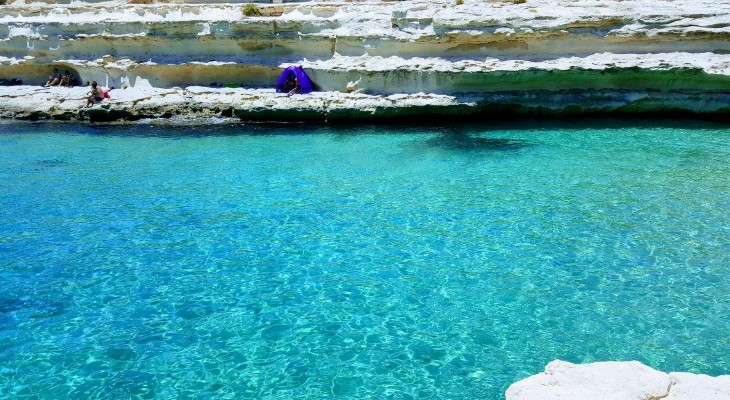
Xrobb l-Għaġin Hostel
The park itself may look deserted at first glance – especially during the hot summer months – but when you sit still, after some time, the variety of biodiversity found on site becomes noticeable. The park is home to various yet unusual vegetation communities due to its unique geology, some of which are endemic, such as the Maltese salt tree or the large variety of orchids that can be found growing in the steppe area in spring. With this diversity, wild animals feel welcomed and encouraged to colonise here. In the warm seasons, when flowers are at the peak, various butterflies takeover. There are a few reptiles scurrying around, such as the Black Western Whip-snake, the Occelated Skink, the Maltese Wall Lizard, and Chameleons. Mammals such as the Wild Rabbit and Vagrant Hedgehogs are illusive creatures in the park, while marine mammals such as the Bottle-nosed Dolphin have been observed.
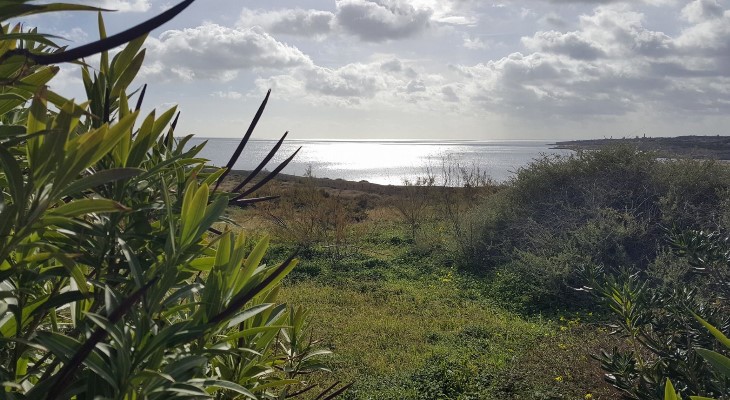
Xrobb l-Għaġin Hostel
Various species of migratory birds visit the park, such as the Hoopoe, Turtle Doves, Quails, Larks, Wagtails, Redstarts, Wheateaters, amongst others. Those that like to perch on the tall trees are the Flycathers, Tree Sparrows and Robins, while those that like the shrubs include a great variety of warblers, like the Ziting Cistocola, Wood Warbler and Sardinian Warbler.
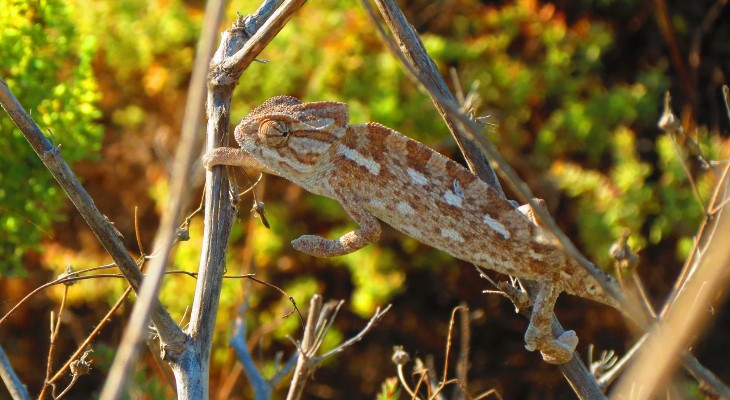
Xrobb l-Għaġin Nature Park
What's really interesting is the fact that the peninsula of Xrobb L-Ghagin has witnessed the presence of human civilisation since 3,000 BC. A temple belonging to the Tarxien Phase was built by the first inhabitants of the island. The site was excavated between 1914-1915 and is believed to have been largely destroyed by coastal erosion later on in the century. However, three years ago it was discovered that remains of the temple still survive, along with a previously unrecorded megalithic structure nearby. Last year it was announced that the environment and culture ministries were forming an inter-ministerial committee in order to safeguard the remains of the temple but as of yet, the temple is still accessible to the public. Since the area is located at the edge of an undercut cliff face, it's considered extremely dangerous to visit and not encouraged.
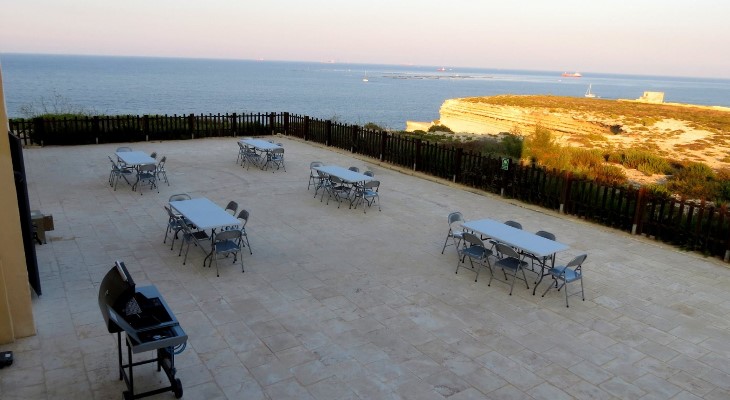
Xrobb l-Għaġin Hostel
At €18 per person a night, a stay at Xrobb l-Għaġin Hostel includes a bed and use of bathrooms, kitchen/kitchen equipment, the barbecue set and outside furniture, wifi, a common lounge and TV area, basic breakfast (tea, coffee, water, toast, butter, jam), and fans or heaters, together with blankets in the winter.
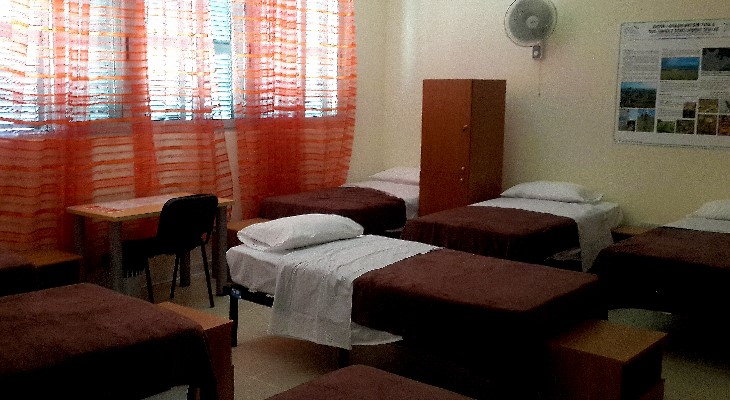
Xrobb l-Għaġin Hostel
Groups can make use of the conference room for meetings or activities, while visitors are encouraged to enjoy themselves while being environmentally friendly.
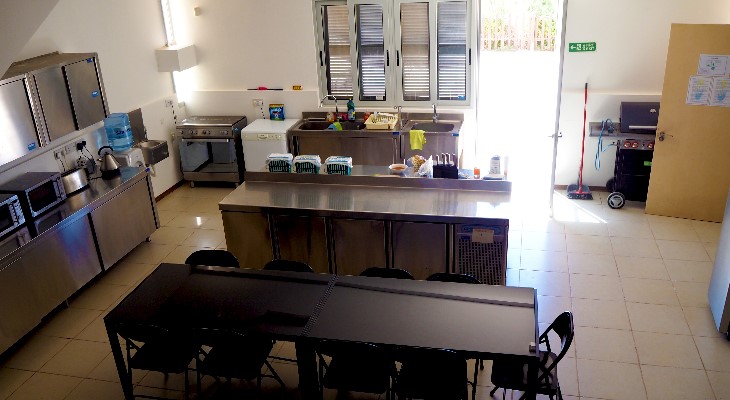
Today, the entire building is running on renewable energy, and has energy efficient features as well as a sustainable use of waste water. The project was awarded the Energy Globe Award in 2012 for its best practices and environmental friendliness.